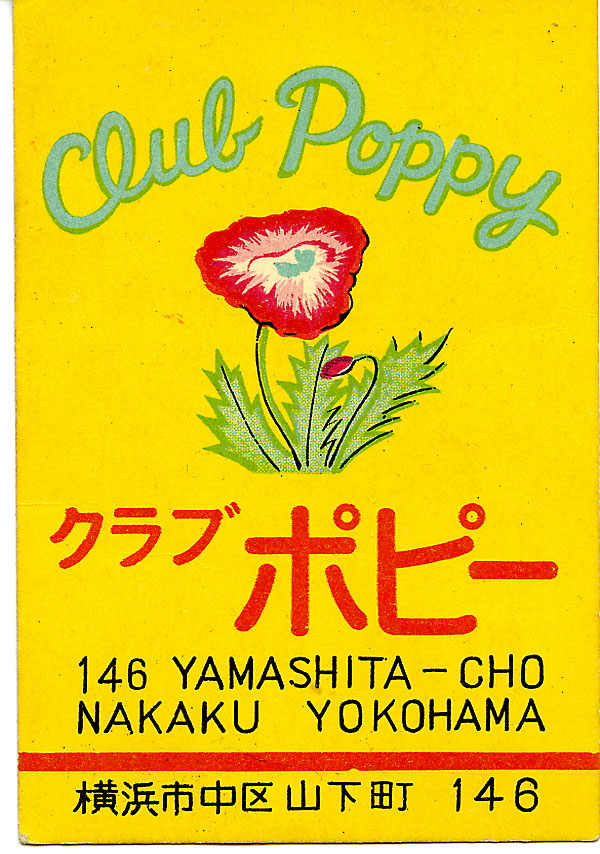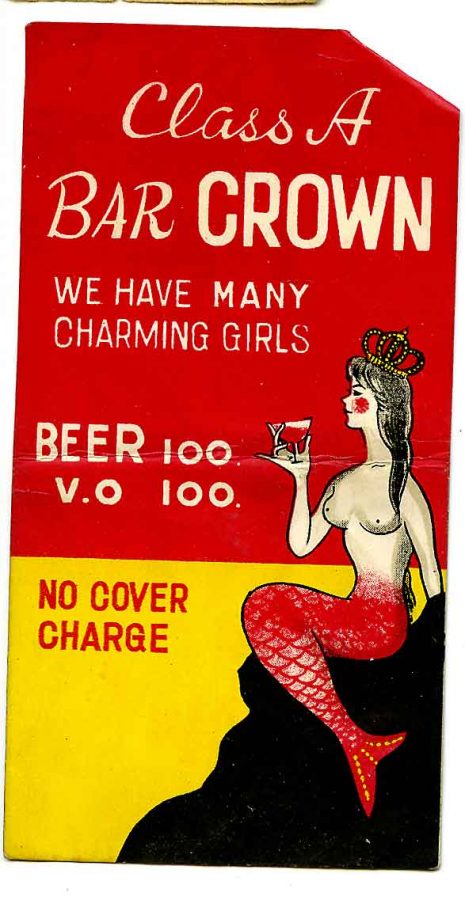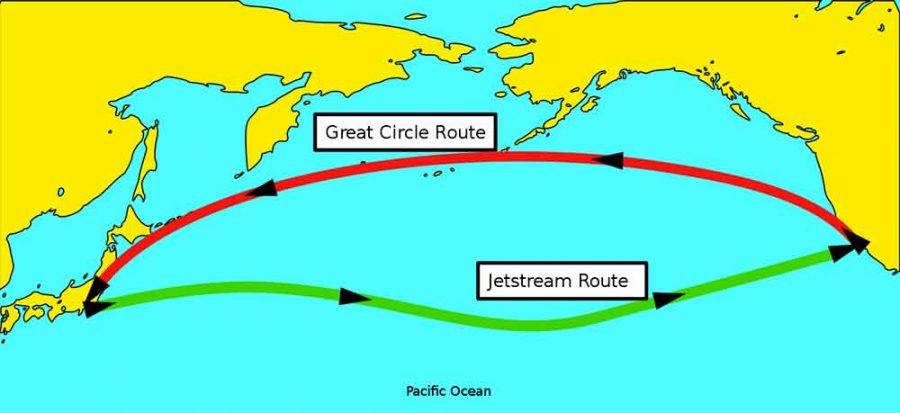
These were handouts that we were given all over the part of Yokohama we explored. Why did I save them for 60 years? I don’t know.
It was Saturday afternoon. We had our going to town clothes on in preparation for a day and a half of freedom! The going ashore group assembled on the poop deck where the little Taxi chugged awaiting our boarding.
The second mate pointed a finger at me and said “Not you”. I was to be punished for my sloppy work habits. I watched dismally as the crew boat made its way through the crowded harbour towards the Yokohama dock. It was getting on to three weeks at sea and I was considerably depressed to know that I was to spend the whole weekend on board. The second mate himself was on the crew boat so with my jailer gone an opportunity presented itself.
Some of the crew wanted to visit friends on other ships in the harbour and had the use of the ship’s boat. There wasn’t any reason why I couldn’t go along. Perhaps the other officers took pity on me and thought my punishment harsh. The afternoon saw us on one of the Belnor’s sister ships (they had been built at the same time and belonged to the same company; their names all began with Bel…) drinking Scotch and Beer while the two crews exchanged stories. I was the beneficiary of an interesting Nordic practice in civility: if there was a person in the group who didn’t understand the language everyone reverted to English.
The crew of this ship lived under a different regime. Drinking was allowed and there were some harrowing tales of sea voyages. Some of the members of my own ship let slip that the Belnor hadn’t always been such a fussy, pristine boat and had a dark past. Later, I was to learn why it had become so clean and dry.
Some of the crew had no use for Japan and no interest in going ashore. The Belnor had been making this shuttle between Port Moody and Yokohama for three years and for some the excitement had worn thin. These were career sailors and their lives were as regulated and secure as any landlubbers were. Each long enough on board to have their own cabin. The radio operator had a room full of hobbies. He played the accordion, which made for some hilarious evenings when he tried to fit in with Ron’s Rock and Roll Guitar. He kept himself busy with radio and had made some impressive receptions with the aerial that he dangled out the porthole in good weather
to be continued…


